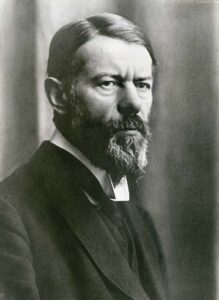SENHU WANG
 Dr Senhu Wang is an Assistant Professor at the Department of Sociology and Anthropology and is affiliated with the Centre for Family and Population Research, National University of Singapore (NUS). He obtained his PhD in Sociology from the University of Cambridge. His research interests include work and family, medical sociology, demography and quantitative research methods. His current research seeks to better understand how changing work-family relations (e.g., precarious employment, low fertility, neotraditional gender division of labor) influence people’s health, wellbeing, subjective attitudes and life chances in a global context using large-scale survey data and experiments.
Dr Senhu Wang is an Assistant Professor at the Department of Sociology and Anthropology and is affiliated with the Centre for Family and Population Research, National University of Singapore (NUS). He obtained his PhD in Sociology from the University of Cambridge. His research interests include work and family, medical sociology, demography and quantitative research methods. His current research seeks to better understand how changing work-family relations (e.g., precarious employment, low fertility, neotraditional gender division of labor) influence people’s health, wellbeing, subjective attitudes and life chances in a global context using large-scale survey data and experiments.
He has published more than 40 articles in many top tier journals including Demography, British Journal of Sociology, Social Science & Medicine, and Social Science Research. He has received research funding from the Singapore MOE Tier 1 Grant, National Social Science Fund of China, Cambridge Political Economy Trust, Department of Work & Pensions UK, and Police Care UK, among other grantors. His research has been widely reported by more than 100 media and organizations over the world such as BBC, CNN, Financial Times, Guardians, Bloomberg etc.
Dr Wang was recently granted the FASS Award for Promising Researcher (APR). This award is presented to researchers who have produced research that shows potential impact and promise. We congratulated Dr Wang and spoke to him about his research work.
1. What inspired you to become a sociologist?
The motivation for me to become a sociologist comes from my curiosity about the relationship between individuals and society. How an individual's everyday life is influenced by the society and how social structures are maintained and reproduced through individual behaviour are fundamental questions I am interested in. Sociology is a discipline that goes beyond individuals to explain the dynamic and complex relationship between individual and society. Sociologists never discriminate against any types of research, but are tolerant of any philosophical conventions, theoretical paradigms and methodological approaches. By facilitating the interdisciplinary collaboration and integration, sociology helps us understand and address some of the most challenging social problems in our society. It is such diversity and open-mindedness that inspired me to become a sociologist.
2. How did you initially become interested in studying work and wellbeing?

Work is not only a part of the economic system, but is also been shown important for our health and wellbeing. However, the recent decades have witnessed dramatic changes in employment relations and working conditions all over the world. Various social forces including periodic economic crises, demographic changes, and technological advancement, as well as the COVID-19 pandemic all have contributed to the changes in employment relations and working conditions such as precarious employment, shorter working hours, gig economy, flexible working arrangements. These changing employment relations have changed the meaning and nature of work in the contemporary society. It is therefore important to re-consider the consequences and implications of work for our health and wellbeing.

3. What are the most interesting and/or challenging aspects of your current research projects on flexible working and marriage and fertility intentions in Singapore and family goals and ideals?
A growing body of literature suggests that the prevalence of the overwork norm may be a crucial reason for low marriage and fertility rates in Singapore. However, as the societal-level work norm is often closely linked to family values, its causal effect on marriage or fertility intentions has been rarely examined. My project theorizes the overwork norm as an institutional constraint of fertility and examines how the removal of such constraint via government-initiated flexible working arrangements (FWAs) affects fertility intention. Using a population-based vignette survey experiment, this project explores how young people’s marriage and fertility intentions vary under different degrees of institutional constraints by experimentally manipulating three types of FWAs (i.e., reduced hours, flexible schedule and flexible place) in Singapore where both the overwork norm and low marriage/fertility rates are widely prevalent. The overall results show that these FWAs can significantly improve people’s intentions to marry and have children. More detailed results will be published in academic journals.

4. To what extent could the findings about the effect of family policy awareness on family formation among young unmarried people in Japan from your article, ‘Family policy awareness and marital intentions: A national survey experimental study’ (Demography, 2022) be applied to other national and regional contexts? Do you think that there would be significant variations in findings in nations and regions outside of East Asia?
Yes, the results could be generalized to other countries. Policy awareness is a new concept in demography and family research. Abundant research shows that information asymmetry is prevalent, and policy information is not always accurately and comprehensively transmitted to individuals. For example, people may be not aware of existing family policy benefits due to various reasons, ranging from inefficient government advertising through limited access to policy information in less developed areas to structural and institutional constraints such as employer discrimination against those using family benefits, among others. I think the lack of family policy awareness may be more pronounced in East Asian countries where many people are overwhelmed by the high living cost and overwork. However, to what extent there are national variations of the effects needs to be tested by future research.
5. Which of your academic publications are you most proud of and why?
It is hard for me to talk about any publications I am proud of. But I am very proud that I enjoyed the process of doing research and exploring the unknown world.
6. Which sociologists have been most influential for you?

Max Weber is one of my favourite sociologists and is regarded as among the most important theorists of the development of modern society. Although he has been regarded as one of founding fathers of sociology, his comprehensive research holds significant implications for many other disciplines such as economics, political science, management etc.
7. What has been your most memorable teaching experience at NUS?
NUS students are very polite, smart and hardworking. I enjoyed my every single class at NUS very much!
8. Lastly, what research avenues are you keen on pursuing in future?
In the future, I will continue my research on work-family relations and its social consequences in a global world.
Thank you very much for taking the time to answer these questions, Dr Wang! And congratulations again on being awarded Promising Researcher!

